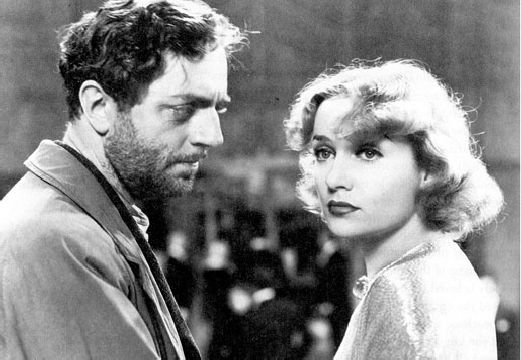My Man Godfrey (1936) 

Director: Gregory La Cava
Cast: William Powell, Carole Lombard, Alice Brady
Synopsis: A scatterbrained socialite hires a vagrant as a family butler…but there’s more to Godfrey than meets the eye.
Released when the Great Depression was in its sixth year and still showing no signs of abating, Gregory La Cava’s My Man Godfrey was an example of screwball comedy that distinguished itself by at least acknowledging America’s dire economic situation, even though transforming it into something unrecognisable. This being Hollywood during the height of the studio system — an organism dedicated to the manufacturing of frothy escapist entertainment — the depiction of the hobos that live a stone’s throw from the privileged few is sanitised beyond recognition. What we see aren’t desperate and frightened individuals whose previous life has been snatched away from them through no fault of their own, but a stoically cheerful group steeped in camaraderie who face adversity with a jaunty quip.
William Powell plays the title character, a down-and-out living in a Hooverville shanty town, who’s approached by Cornelia (Gail Patrick), a wealthy socialite who is searching for a ‘forgotten man’ for a scavenger hunt in which she is taking part. With an eloquence that belies his apparent status, Godfrey rejects her insensitive offer of five dollars, but agrees to accompany Cornelia’s younger sister Irene (Carole Lombard) to the party from which the hunt is being orchestrated, simply so that he can issue a withering put-down to the idle rich who have so little regard or sympathy for those less fortunate than themselves. Irene is so impressed that she offers him a position as the butler to her wealthy but dysfunctional family. However, Godfrey has made an enemy of Cornelia, who determines to make his life hell while he is working for them.
The Hollywood screwball comedies of the 1930s have never been a favourite genre of mine. Its characters speak their lines at a breakneck pace that irritates rather than amuses, and they too often behave with the irrational compulsions of a five-year-old child. No doubt it was a reaction to the nation’s exceptional circumstances — another form of escapism to complement the Busby Berkeley musicals and Shirley Temple Cute-fests — which is perhaps why it was so short-lived as a sub-genre and never successfully revived. Apart from a few notable moments, the performances in My Man Godfrey are perhaps more grounded than others of its type — although the semi-hysterical pitch of Alice Brady’s voice is irritating beyond belief. The irksomeness of Brady’s performance is countered somewhat by a typically smooth and polished performance from William Powell who, while never possessing the looks of a movie star, was always the epitome of star quality.
The story in My Man Godfrey is typical Hollywood fluff, although some half-hearted attempts are made to address the disparity between the haves and have-nots. Unfortunately, most of these are got out of the way with unseemly haste after the opening sequence so that the film can concentrate on delivering pure comedy. This it does with typical aplomb, providing a textbook example of the type of quality material Hollywood was capable of delivering. But while it’s possible to appreciate the quality of the material, it’s also impossible to deny that My Man Godfrey is hopelessly outdated, and looks more like a relic from a bygone era with each passing year.
(Reviewed 23rd December 2011)
httpv://www.youtube.com/watch?v=0j6dZf3-uWc
